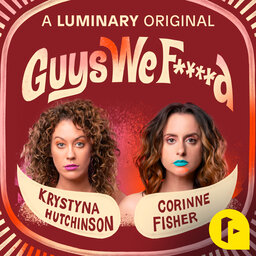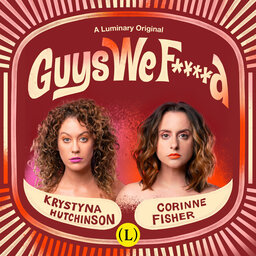HOW DO I RECOGNIZE CODEPENDENCY IN A RELATIONSHIP?
On this week’s episode of @GuysWeFcked, CORINNE FISHER (@philanthropygal) details her 24-year-old boyfriend's first trip the strip club, and KRYSTYNA HUTCHINSON (@krystynahutch) catches some absolute fuckery going on in her new apartment building's common area! The gals then sit down with licensed psychotherapist ALYSSA MARIE (@alyssamariewellness) to discuss how anxiety, trauma, and depression color the way we date, and examine overall questionable behavior in relationships. Featuring "girthy" commentary by resident dude MIKE COSCARELLI (@mikecoscarelli).
Follow this week’s guests on social media:
Alyssa Marie - @alyssamariewellness
Follow Corinne on Twitter/IG/TikTok: @PhilanthropyGal
Follow Krystyna on Twitter/IG/TikTok: @KrystynaHutch
Follow Guys We Fucked everywhere: @guyswefcked
THE DUMB BITCH WOO-WOO HOUR: youtube.com/guyswefcked
LISTEN TO CORINNE'S NEWS & POLITICS PODCAST with comedian SHAYNE SMITH, WITHOUT A COUNTRY, Saturdays on all podcasting platforms including full video on YouTube. https://m.youtube.com/channel/UCjP3oJVS_BEgGXOPcVzlpVw
LISTEN TO KRYSTYNA'S SELF-HELP SOLO PODCAST, The Voices In Our Heads, on Krystyna’s Patreon!
Do you think your music should be featured on an episode of GWF? E-mail a streaming link to Mike Coscarelli: GWFPodcastMusic@gmail.com
THIS WEEK’S FEATURED MUSIC: Cara Brindisi
Song 1- Masquerade
Song 2- Lasso The Moon
https://open.spotify.com/artist/4XcZtFPozKB8Dr2Orb02tc?si=FYLnBYb5Qb2bY4pIrK8xuA
Learn more about your ad-choices at https://www.iheartpodcastnetwork.com
 Guys We F****d
Guys We F****d


